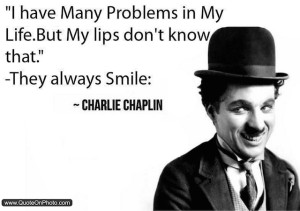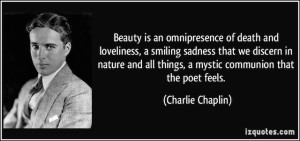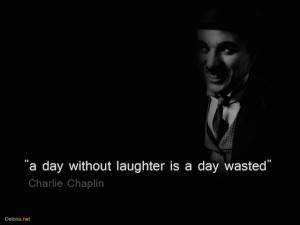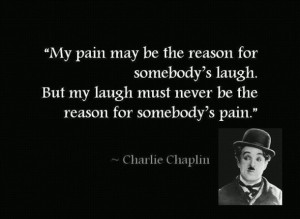
Charlie Chaplin with a Charlie Chaplin doll, 1918
“A steak and kidney pie, influenza and a cablegram. There is the triple alliance that is responsible for the whole thing.”
So begins Charlie Chaplin’s My Trip Abroad, a travel memoir charting the actor-director’s semi-spontaneous visit to Europe, published in New York and London by Harper & Brothers in 1922. Fresh off the success of 1921’s The Kid, Chaplin decides to “play hookey” after his seven year stay in Hollywood. He returns to his native Europe as an international superstar, beloved by fans and hounded by reporters. The “triple alliance” of the book’s opening line sends Chaplin on a whirlwind tour through Great Britain, Germany, and France with results ranging from funny to insightful to poignant with no sugarcoating his moods, be they ebullient, weary or annoyed. In My Trip Abroad, Chaplin’s voice, still unheard on screen, is true to the complexities of the character he had already made legendary in his movies.

Thomas Burke
In the following excerpt, “I Meet Thomas Burke and H.G. Wells,” Charlie recounts his nerve wracking introduction to British author Thomas Burke, whose 1918 short story collection Limehouse Nights was a huge success in the U.K. that struck a responsive chord in Chaplin in its depictions of life in London’s poverty-stricken Limehouse district. In America, pioneer film director D.W. Griffith based two of his films on Burke stories: “The Chink and The Child” informed his celebrated Broken Blossoms (1919), whereas “Gina of Chinatown” and “Song of the Lamp” became the basis for Griffith’s 1921 feature, Dream Street. The chapter preceding this one concluded with Chaplin’s introduction to the dour Burke and the two heading out into the Limehouse district streets for an evening stroll. “I have nothing to suggest except that we ramble along with nothing deliberate in view,” Chaplin writes at the chapter’s end. “I feel that this pleases him, for a light of interest comes into his eyes, chasing one of responsibility. We are just going to stroll along.” (My Trip Abroad was published in the U.K. as My Wonderful Visit.)
As Burke and I ramble along toward no place in particular, I talk about his book. I have read “Limehouse Nights” as he wrote it. There is nothing I could see half so effective. We discuss the fact that realities such as he has kept alive seldom happen in a stroll, but I am satisfied. I don’t want to see. It could not be more beautiful than the book. There is no reaction to my flattery. I must watch good taste. I feel that he is very intelligent, and I am silent for quite a while as we stroll toward Stepney. There is a greenish mist hanging about everything and we seem to be in a labyrinth of narrow alleyways, now turning into streets and then merging into squares. He is silent and we merely walk
And then I awaken. I see his purpose. I can do my own story—he is merely lending me the tools, and what tools they are! I feel that I have served an ample apprenticeship in their use, through merely reading his stories. I am fortified.
It is so easy now. He has given me the stories before. Now he is telling them over in pictures. The very shadows take on life and romance. The skulking, strutting, mincing, hurrying forms that pass us and fade out into the night are now becoming characters. The curtain has risen on “Limehouse Nights,” dramatised with the original cast.
There is a tang of the east in the air and I am tinglingly aware of something vital, living, moving, in this murky atmosphere that is more intense even for the occasional dim light that peers out into the soft gloom from attic windows and storerooms, or municipal lights that gleam on the street corners.
Here is a little slice of God’s fashioning, where love runs hand in hand with death, where poetry sings in withered Mongolian hearts, even as knives are buried in snow-white breasts and swarthy necks. Here hearts are broken casually, but at the same time there comes just as often to this lotus land the pity, terror, and wonder of first love, and who shall say which is predominant?
Behind each of those tiny garret windows lurks life—life in its most elemental costume. There is no time, thought, or preparation for anything but the elemental passions, and songs of joy, hope, and laughter are written into each existence, even as the killings go on, surely, swiftly.
There must be a magic wand forever doing a pendulum swing over this land, for the point of view often changes from the beastly to the beautiful, and in one short moment the innocent frequently gather the sophistication of the aged. These creatures of life’s game run blithely along their course ignorant of the past, joyful in the present, and careless of the future, while their tiny lightened windows seem to wink deliberately as they make pinpricks of light through the shuttered gloom.

On the other side of the street there is stepping a little lady whose cheap cotton clothes are cut with Parisian cunning, and as we cross and pass her we discern beauty, enhanced manyfold by youth and vitality, but hardened with premature knowledge. I can’t help but think of little Gracie Goodnight, the little lady who resented the touch of a “Chink,” so much so that she filled the fire extinguishers in his place with oil, and when he was trapped in the blazing building, calmly, and with a baby smile upon her face, poured the contents of the extinguisher over him and his furniture.
There is the Queen’s Theatre, bringing forward a mental picture of little Gina of Chinatown, who stopped a panic in the fire-frightened audience of the playhouse as her début offering on the stage. Little Gina, who brought the whole neighbourhood to her feet in her joyous dancing delight. Little Gina, who at fourteen had lived, laughed, and loved, and who met death with a smile, carrying the secret of him with her.
Every once in a while Burke merely lifts his stick and points. His gesture needs no comment. He has located and made clear without language the only one object he could possibly mean, and, strangely, it is always something particularly interesting to me. He is most unusual.
What a guide he is! He is not showing me Main Street, not the obvious, not even the sightseer’s landmarks, but in this rambling I am getting the heart, the soul, the feeling. I feel that he has gauged me quickly—that he knows I love feelings rather than details, that he is unconsciously flattering to my subtlety, after two miles through black, though lovely, shadows.
Now he is picking the spots where lights are shining from the fish shops. He knows their locations, knows their lights because he has studied them well. There are forms slinking gracefully, as though on location and with rehearsed movement. What an effect for a camera!
This is rugged. Here are the robust of the slums. People act more quickly here than in Lambeth. And suddenly we are back where we started. In a car we go to the old Britannia, Hoxton, rather reluctantly.
There is a glaring moving-picture palace. What a pity! I resent its obtrusion. We go along toward the East India Docks—to Shadwell. And I am feeling creepy with the horror of his stories of Shadwell. I could hear a child screaming behind a shuttered window and I wondered and imagined, but we did not stop anywhere.
We meandered along with just an occasional gesture from him, all that was necessary to make his point. To Stanhope Road, Bethnal Green, Spitalfields, Ratcliffe, Soho, Notting Dale, and Camden Town.
And through it all I have the feeling that things trivial, portentous, beautiful, sordid, cringing, glorious, simple, epochal, hateful, lovable are happening behind closed doors. I people all those shacks with girls, boys, murders, shrieks, life, beauty.

As we go back we talk of life in the world outside this adventurous Utopia. He tells me that he has never been outside of London, not even to Paris. This is very curious to me, but it doesn’t seem so as he says it. He tells me of another book that he has ready and of a play that he is working on for early production. We talked until three in the morning and I went back to my hotel with the same sort of feelings that I had at twelve when I sat up all night reading Stevenson’s “Treasure Island.”
The next day I did some shopping, and was measured for boots. How different is shopping here! A graceful ceremony that is pleasing even to a man. The sole advertisement I see in the shop is “Patronised by His Majesty.” It is all said in that one phrase.
And the same methods have been in vogue at this bootmaker’s for centuries. My foot is placed on a piece of paper and the outline drawn. Then measurements are taken of the instep, ankle, and calf, as I want riding boots. Old-fashioned they will probably continue until the end of time, yet somehow I sort of felt that if that old shop had a tongue to put in its cheek, there it would be parked, because tradition, as an aid to the cash register, is no novelty.
In the evening I dined at the Embassy Club with Sonny, and was made an honorary member of the club.
It is amazing how much Europe is aping America, particularly with its dance music. In cafés you hear all the popular airs that are being played on Broadway. The American influence has been felt to such an extent that King Jazz is a universal potentate. Sonny and I go to the theatre and see a part of the “League of Notions,” but we leave early and I run to say hello to Constance Collier, who is playing in London.
The next day is exciting. Through the invitation of a third party I am to meet H. G. Wells at Stoll’s office to view the first showing of Wells’s picture, “Kipps.”
In the morning the telephone rings and I hear some one in the parlour say that the Prince of Wales is calling. I get in a blue funk, as does everyone else in the apartment, and I hear them rush toward the ‘phone. But Ed. Knoblock claiming to be versed in the proper method of handling such a situation, convinces everyone that he is the one to do the talking and I relapse back into bed, but wider awake than I ever was in my life.
Knoblock on the ‘phone:
“Are you there? … Yes … Oh, yes … to-night … Thank you.”
Knoblock turning from the ‘phone announces, very formally, “The Prince of Wales wishes Charlie to dine with him to-night,” and he starts toward my bedroom door. (Through all of this I have been in the bedroom, and the others are in the parlour confident, with the confidence of custom, that I am still asleep.)
As Knoblock starts for my bedroom door my very American secretary, in the very routine voice he has trained for such occurrences, says:
“Don’t wake him. Tell him to call later. Not before two o’clock.”
Knoblock: “Good God man! This is the Prince of Wales,” and he launches into a monologue regarding the traditions of England and the customs of Court and what a momentous occasion this is, contemptuously observing that I am in bed and my secretary wants him to tell the Prince to call later! He cannot get the American viewpoint.

Knoblock’s sincere indignation wins, and the secretary backs away from the bedroom as I plunge under the covers and feign sleep. Knoblock comes in very dignified and, trying to keep his voice in the most casual tone, announces, “Keep to-night open to dine with the Prince of Wales.”
I try to enter into it properly, but I feel rather stiff so early in the morning. I try to remonstrate with him for having made the engagement. I have another engagement with H. G. Wells, but I am thrilled at the thought of dining with the Prince in Buckingham Palace. I can’t do it. What must I do?
Knoblock takes me in hand. He repeats the message. I think some one is spoofing and tell him so. I am very suspicious, and the thrill leaves me as I remember that the Prince is in Scotland, shooting. How could he get back?
But Knoblock is practical. This must go through. And I think he is a bit sore at me for my lack of appreciation. He would go to the palace himself and find out everything. He goes to the palace to verify.
I can’t tell his part of it—he was very vague—but I gathered that when he reached there he found all the furniture under covers, and I can hear that butler now saying:
“His Royal Highness the Prince will not be back for several days, sir.”
Poor Ed.! It was quite a blow for him, and, on the level, I was a bit disappointed myself.
But I lost no time mooning over my lost chance to dine with royalty, for that afternoon I was going to meet Wells. Going to Stoll’s; I was eagerly looking forward to a quiet little party where I could get off somewhere with Wells and have a long talk.

I meet H.G. Wells
As I drew near the office, however, I noticed crowds, the same sort of crowds that I had been dodging since my exit from Los Angeles. It was a dense mass of humanity packed around the entire front of the building, waiting for something that had been promised them. And then I knew that it was an arranged affair and that, so far as a chat was concerned, Wells and I were just among those present, even though we were the guests of honour.
I remember keenly the crush in the elevator, a tiny little affair built for about six people and carrying nearer sixty. I get the viewpoint of a sardine quite easily. Upstairs it is not so bad, and I am swept into a room where there are only a few people and the door is then closed. I look all around, trying to spot Wells. There he is.
I notice his beautiful, dark-blue eyes first. Keen and kindly they are, twinkling just now as though he were inwardly smiling, perhaps at my very apparent embarrassment.
Before we can get together, however, there comes forward the camera brigade with its flashlight ammunition. Would we pose together? Wells looks hopeless. I must show that before cameras I am very much of a person, and I take the initiative with the lens peepers.
We are photoed sitting, standing, hats on and off, and in every other stereotyped position known to camera men.
We sign a number of photos, I in my large, sweeping, sprawling hand—I remember handling the pen in a dashing, swashbuckling manner—then Wells, in his small, hardly discernible style. I am very conscious of this difference, and I feel as though I had started to sing aloud before a group of grand-opera stars.
Then there is a quick-sketch artist for whom we pose. He does his work rapidly, however, and while he is drawing Wells leans over and whispers in my ear.
“We are the goats,” he tells me. “I was invited here to meet you and you were probably invited here to meet me.”

He had called the turn perfectly, and when we had both accepted the invitation our double acceptance had been used to make the showing an important event. I don’t think that Wells liked it.
Wells and I go into the dark projection room and I sit with Wells. I feel on my mettle almost immediately, sitting at his side, and I feel rather glad that we are spending our first moments in an atmosphere where I am at home. In his presence I feel critical and analytical and I decide to tell the truth about the picture at all costs. I feel that Wells would do the same thing about one of mine.
As the picture is reeling off I whisper to him my likes and dislikes, principally the faulty photography, though occasionally I detect bad direction. Wells remains perfectly silent and I begin to feel that I am not breaking the ice. It is impossible to get acquainted under these conditions. Thank God, I can keep silent, because there is the picture to watch and that saves the day.
Then Wells whispers, “Don’t you think the boy is good?”
The boy in question is right here on the other side of me, watching his first picture. I look at him. Just starting out on a new career, vibrant with ambition, eager to make good, and his first attempt being shown before such an audience. As I watch he is almost in tears, nervous and anxious.
The picture ends. There is a mob clustering about. Directors and officials look at me. They want my opinion of the picture. I shall be truthful. Shall I criticise? Wells nudges me and whispers, “Say something nice about the boy.” And I look at the boy and see what Wells has already seen and then I say the nice things about him. Wells’s kindness and consideration mean so much more than a mere picture.
Wells is leaving and we are to meet for dinner, and I am left alone to work my way through the crush to the taxi and back to the hotel, where I snatch a bit of a nap. I want to be in form for Wells.
There comes a little message from him:
Don’t forget the dinner. You can wrap up in a cloak if you deem it advisable, and slip in about 7.30 and we can dine in peace.
H. G. Wells.
Whitehall Court, Entrance 4.
We talk of Russia and I find no embarrassment in airing my views, but I soon find myself merely the questioner. Wells talks; and, though he sees with the vision of a dreamer, he brings to his views the practical. As he talks he appears very much like an American. He seems very young and full of “pep.”
There is the general feeling that conditions will right themselves in some way. Organisation is needed, he says, and is just as important as disarmament. Education is the only salvation, not only of Russia, but of the rest of the world. Socialism of the right sort will come through proper education. We discuss my prospects of getting into Russia. I want to see it. Wells tells me that I am at the wrong time of the year, that the cold weather coming on would make the trip most inadvisable.
I talk about going to Spain, and he seems surprised to hear that I want to see a bull fight. He asks, “Why?”
I don’t know, except that there is something so nakedly elemental about it. There is a picturesque technique about it that must appeal to any artist. Perhaps Frank Harris’s “Matador” gave me the impulse, together with my perpetual quest for a new experience. He says it is too cruel to the horses.
I relax as the evening goes on and I find that I am liking him even more than I expected. About midnight we go out on a balcony just off his library, and in the light of a full moon we get a gorgeous view of London. Lying before us in the soft, mellow rays of the moon, London looks as though human, and I feel that we are rather in the Peeping Tom rôle.
I exclaim, “The indecent moon.”
He picks me up. “That’s good. Where did you get that?”
I have to admit that it is not original—that it belongs to Knoblock.
Wells comments on my dapperness as he helps me on with my coat. “I see you have a cane with you.” I was also wearing a silk hat. I wonder what Los Angeles and Hollywood would say if I paraded there in this costume?
https://www.youtube.com/watch?v=zCW5-_WOfzY
Charlie Chaplin in ‘Cruel, Cruel Love,’ a 1914 Keystone comedy silent, was presumed lost for 50 years, until a complete nitrate copy in good condition was discovered in South America. This early Chaplin film has him playing not the little tramp, but rather a rich, upper-class gentleman whose romance is endangered when his girlfriend oversees him being embraced by a maid. Jilted by his fiancee, Chaplin plans suicide, but his butler replaces his glass of poison with water, allowing his fiancee to be able to rush to his ‘deathbed’ and all ends well. Chaplin’s romantic interest in this film, Minta Durfee, was the wife of fellow Keystone actor, Roscoe “Fatty” Arbuckle.
Wells tries on my hat, then takes my cane and twirls it. The effect is ridiculous, especially as just at the moment I notice the two volumes of the “Outline of History” on his table.
Strutting stagily, he chants, “You’re quite the fellow doncher know.”
We both laugh. Another virtue for Wells. He’s human.
I try to explain my dress. Tell him that it is my other self, a reaction from the everyday Chaplin. I have always desired to look natty and I have spurts of primness. Everything about me and my work is so sensational that I must get reaction. My dress is a part of it. I feel that it is a poor explanation of the paradox, but Wells thinks otherwise.
He says I notice things. That I am an observer and an analyst. I am pleased. I tell him that the only way I notice things is on the run. Whatever keenness of perception I have is momentary, fleeting. I observe all in ten minutes or not at all.
What a pleasant evening it is! But as I walk along toward the hotel I feel that I have not met Wells yet.
And I am going to have another opportunity. I am going to have a week-end with him at his home in Easton, a week-end with Wells at home, with just his family. That alone is worth the entire trip from Los Angeles to Europe.

My favourite autograph.
Source: Project Gutenberg

